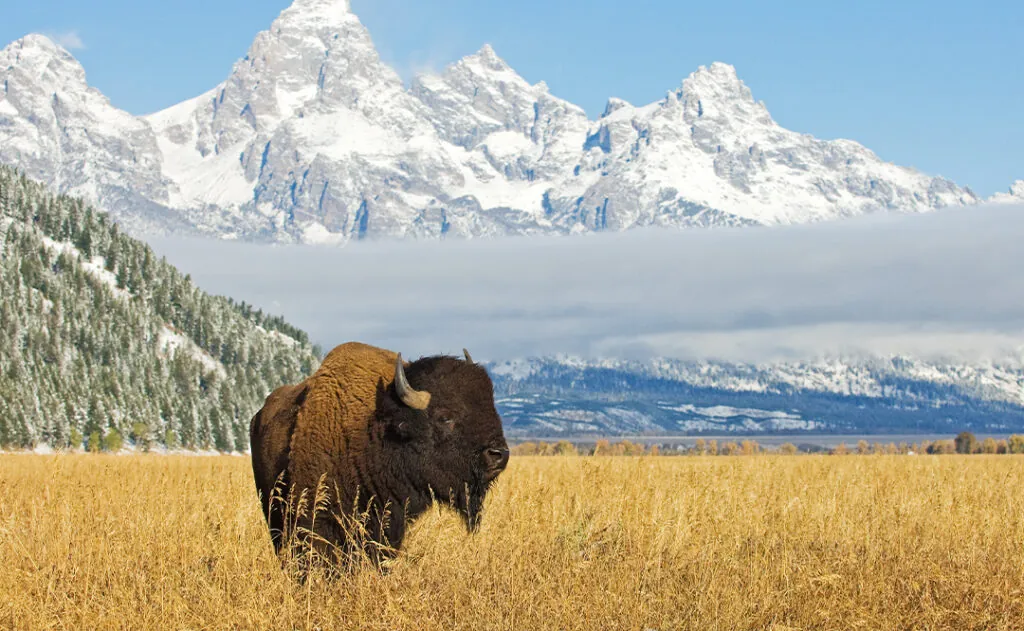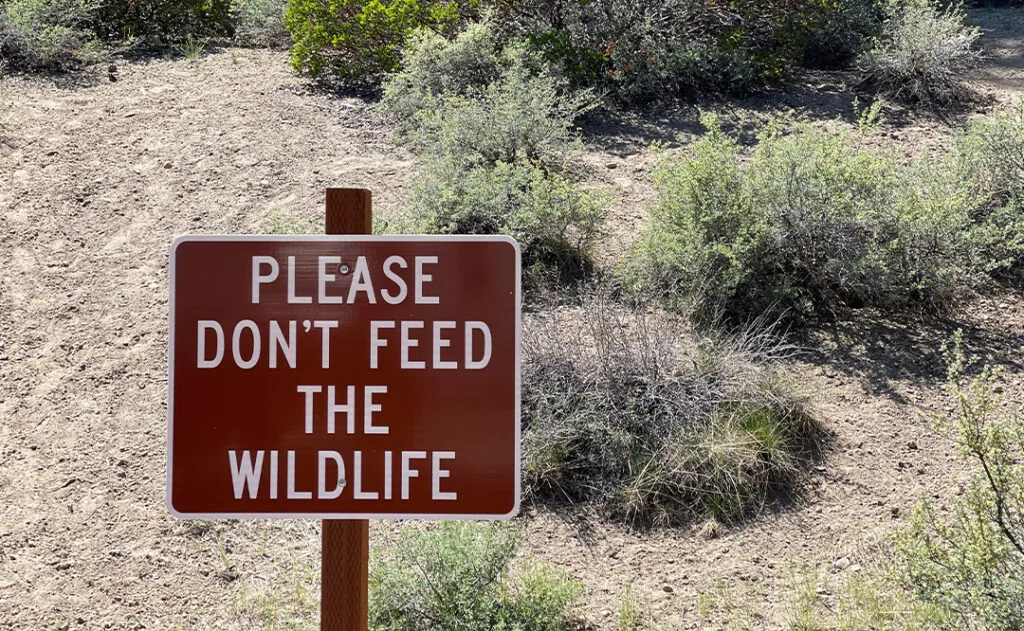What’s more jaw-dropping than the views at America’s national parks? The unbelievable things that tourists do while visiting. From the truly offensive (like antagonizing wildlife) to the unintentionally trip-ruining (such as showing up without a reservation), these are the eight things you should never do in a national park.
Travel to Popular Parks Without a Plan
The annual number of visitors to national parks has exploded recently. In 2023, national parks reported 325.5 million recreation visitors, an increase of 12 million visitors from 2022.
A number of popular national parks have implemented reservation requirements in an effort to control the crowds. When planning your visit, make sure you research reservation requirements, know what is open within the parks, and whether you can drive your car or will need to take a shuttle. Don’t show up without accommodation booked, thinking you can just have a spontaneous trip, especially during peak season. Nothing would be worse than buying flights and booking hotels only to get all the way to the park and not be able to go in because you don’t have a reservation.
These national parks will require reservations in peak season:
- Arches National Parks
- Glacier National Park (Going-to-the-Sun Road and North Fork)
- Mount Rainier National Park (Paradise Corridor and Sunrise Corridor)
- Shenandoah National Park (Old Rag)
- Rocky Mountain National Park (Bear Lake Road Corridor and “rest of park”)
- Yosemite National Park
- Zion National Park (Angels Landing)
Leave a Trace
The first rule of national parks, or any outdoor environment, is to leave no trace. Simply put, this means to have as minimal an impact on the environment as possible. This means not only leaving nothing behind (like trash), but also applies to not tampering with the environment by taking things with you. For example, you shouldn’t pick wildflowers or collect stones to bring home as a souvenir
Get too Close to Wildlife

There are news stories of national park visitors getting gored while trying to snap a selfie with or even pet bison. Although the animals may look adorable, you have to remember that these are wild animals, and you must keep your distance. It’s for your safety and the animals’ safety.
Most national parks require you to stay a minimum of 25 yards from most wildlife and 100 yards from predators like bears and wolves. If animals react to your presence, you are too close.
If you’re bad at eyeballing distances, a good trick is to follow the “rule of thumb.” If your thumb can cover the entire animal you’re looking at on the horizon, you’re at a safe distance.
Remember that national parks are wild places, so even if you think an animal needs help, don’t approach it. A pair of visitors to Yellowstone National Park infamously decided a baby bison looked cold and loaded it in their car to “rescue it” by taking it to a ranger station. The ranger tried to reintegrate the calf with its herd, but it was rejected by its mother and had to be euthanized. The tourists were fined for interfering with the wildlife.
Underestimate Hikes
It can be easy to underestimate trails in the national parks. Many trails are short and leave directly from a parking lot, lulling hikers into a false sense of security. Unfortunately, these trails are still in the wild, and things can easily go wrong. Hikers have gone missing and died in national parks on trails that are as short as half a mile round trip.
Even if you’re going on a short walk, wear proper footwear and carry plenty of water and supplies.
Get Distracted by the Scenery When Driving
Vehicle crashes are the second leading cause of death in national parks. Roads within national parks are attractions in their own right, winding through stunning scenery.
As tempting as it can be, keep your eyes on the road when driving through national parks. There are plenty of pull-offs where you can take a break to snap a photo or admire the view.
Always stay alert for wildlife, especially at dusk and dawn when animals are most active. Keep an eye out for human visitors as well, who may unexpectedly dart into the roadway. Go slow and always follow the speed limit. Many roads are twisty and run alongside steep drop-offs. Exercise extra caution when driving at night, as there won’t be any street lights.
Feed the Wildlife

The National Parks Service (NPS) doesn’t mince words. “Feeding wildlife is actually a form of animal cruelty.” When animals become accustomed to human-provided food sources, they may lose their natural foraging behaviors and become dependent on humans for sustenance. This also makes wildlife more comfortable around humans, increasing the risk of aggressive encounters.Being fed by humans lures animals into populated areas, like roads, where they are more likely to be hit by a car.
Additionally, many human foods are unsuitable for wild animals and can cause malnutrition, disease, and even death. Even if you’re not intentionally feeding wildlife, leaving food scraps behind on a hike or picnic, littering, or not properly securing your food can have the same impact.
Go Off Trail
Going off trail can be dangerous for both you and the environment. Veering off designated paths can easily damage or kill plant species and contribute to trail erosion. In many national parks, it can be extremely easy to get lost, which is why it’s important to stay on the trail.
Fly Drones
Drones have crashed in geysers in Yellowstone National Park, fallen into the Grand Canyon, and disturbed wildlife—which is why they are banned from national parks.
Unmanned aircraft, aka drones, are banned in all national parks, so please leave them at home.
You Might Also Like:
• 8 English Words You Should Never Use Abroad• 8 Things You Should Never Do in a Hotel
• 6 Things Tourists Should Never Do in Major Cities
• The One Lie You Should Always Tell While Traveling
• 7 Things Not to Do at Hotel Checkout
We hand-pick everything we recommend and select items through testing and reviews. Some products are sent to us free of charge with no incentive to offer a favorable review. We offer our unbiased opinions and do not accept compensation to review products. All items are in stock and prices are accurate at the time of publication. If you buy something through our links, we may earn a commission.
Related
Top Fares From
Today's Top Travel Deals
Brought to you by ShermansTravel
France: 8-Night Paris, Avignon & Nice...
Infinity Worldwide Vacations
 vacation
$2880+
vacation
$2880+
Poconos: 3 Nts in Garden of...
ResortsAndLodges.com
 hotel
$305+
hotel
$305+
7-Nt Canada & New England Cruise,...
Princess Cruises
 cruise
$839+
cruise
$839+




